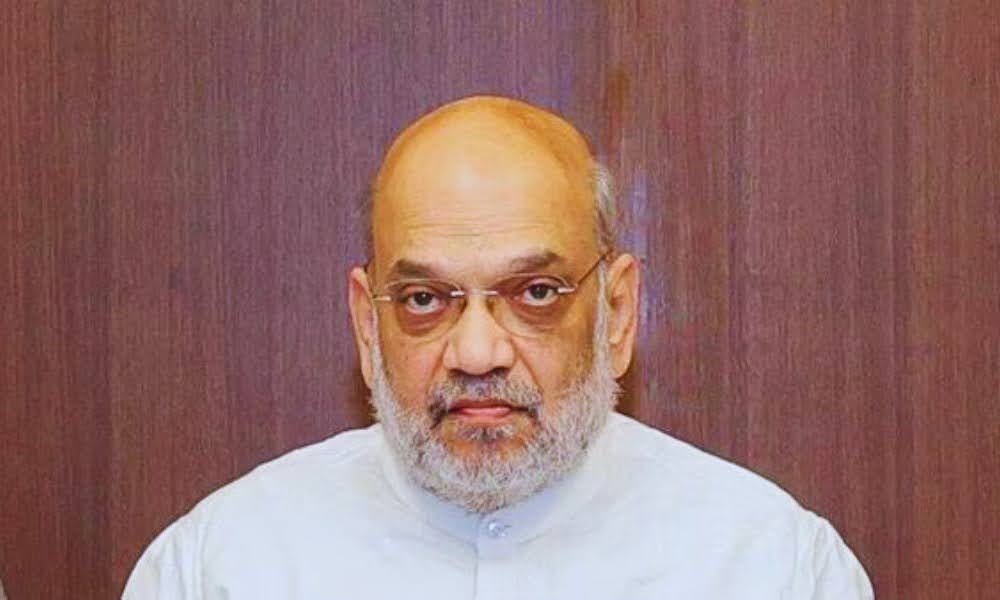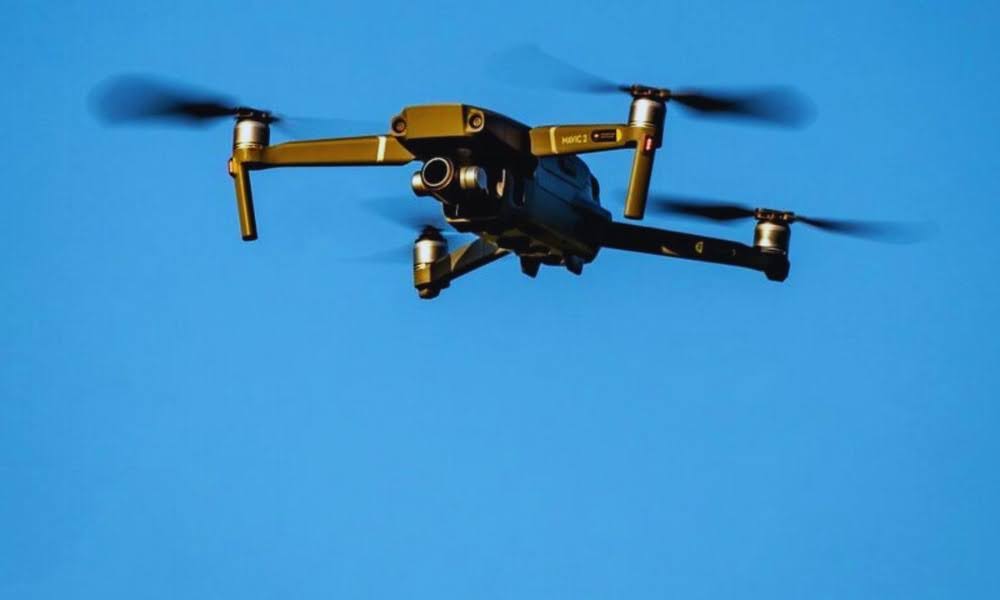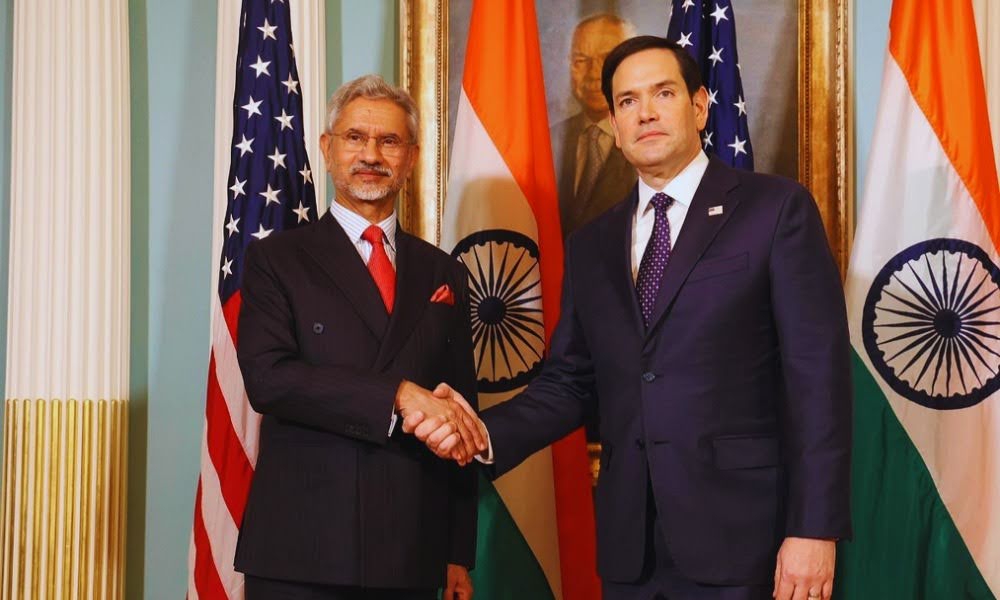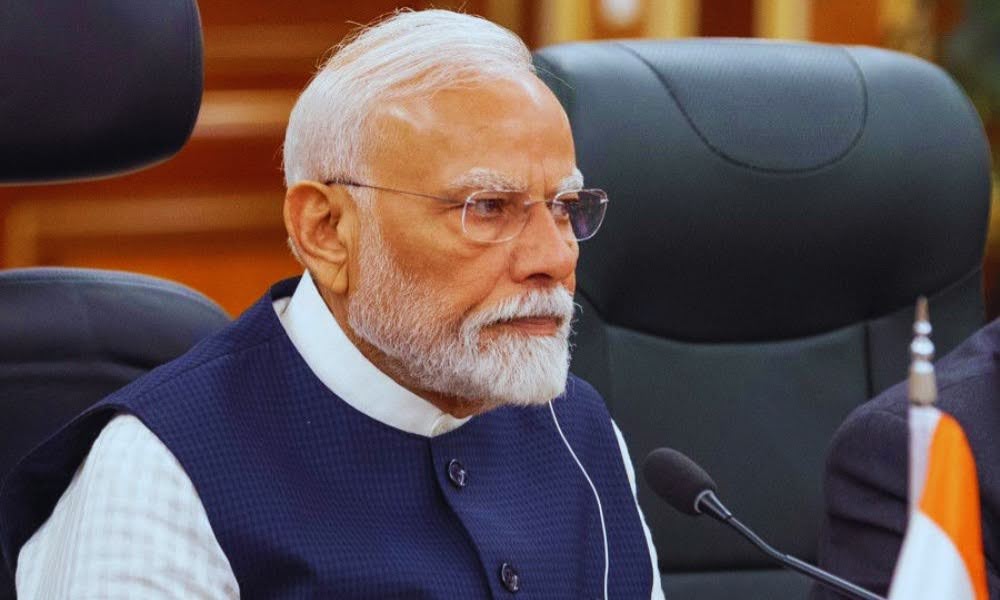Amit Shah Holds High-Level Meeting After Pakistan’s Attempted Strike on Jammu Airport; Blackouts and Security Measures Enforced Across Border States

Union Home Minister Amit Shah convened a high-level meeting with senior security officials following Pakistan’s attempt to target Jammu airport.
This development prompted heightened counter-measures, including widespread power blackouts in Jammu, Srinagar, and nearby areas to counter potential aerial threats.
Blackouts Enforced Across Border States
Power blackouts were imposed in various border areas of Jammu and Kashmir, with extended coverage into parts of Punjab such as Amritsar and Pathankot.
In response to the escalating situation, authorities in Haryana and West Bengal have taken precautionary steps including announcing school closures, initiating blackouts in border districts, and cancelling the leaves of police personnel and administrative officials, as reported by PTI.
US Reacts: “None of Our Business”
As the situation continues to deteriorate, US Vice President JD Vance commented on the conflict, maintaining that the United States would not intervene.
Speaking to Fox News, Vance said, “What we can do is try to encourage these folks to de-escalate a little bit, but we’re not going to get involved in the middle of a war that’s fundamentally none of our business and has nothing to do with America’s ability to control it.”
Vance has long supported US disengagement from global military conflicts, and his remarks reflect Washington’s intention to stay on the sidelines while urging both sides toward de-escalation.
Earlier, the Indian military asserted its commitment to avoiding escalation, provided Pakistan respects the same principle. “It is committed to ‘non escalation,’ provided it is respected by the Pakistan military,” the military told the media.
Operation Sindoor: What Sparked the Conflict
The launch of India’s Operation Sindoor came in the aftermath of mounting tension following the deadly terror attack in Pahalgam’s Baisaran valley on April 22, which left 26 civilians, mainly tourists, dead.
The attack marked the deadliest terror strike on civilians in 25 years and severely strained diplomatic relations between the two countries. Pakistan’s subsequent downgrade in diplomatic ties with India further fueled hostilities.
In response to the situation, Amit Shah directed the Central Industrial Security Force (CISF) to enhance protection at all key infrastructure points across the nation.
The CISF is responsible for securing major assets such as airports, nuclear facilities, power plants, space research centres, and prominent government buildings.
Shah is also scheduled to lead a meeting with the Director Generals of the CISF and Border Security Force (BSF), along with senior Home Ministry officials, at 12:30 pm to assess airport security and the border situation.
India Responds to Drone Attacks Along Western Border
Tensions reached a tipping point when the Pakistan Armed Forces initiated multiple coordinated drone attacks across India’s western border on the night of May 8-9. These attacks targeted military sites, airports, and other key establishments.
However, Indian forces responded effectively. The Indian Army neutralised numerous Pakistani drones during a large-scale counter-drone operation along both the Line of Control (LoC) and the International Borders (IB).
In a statement posted on X, the Army said, “Indian Army remains committed to safeguarding the sovereignty and territorial integrity of the Nation. All nefarious designs will be responded with force.”
Sources reported that Pakistan made multiple failed attempts to deploy swarm drones across several locations. In retaliation, India’s Army Air Defence units launched swift counter-operations in areas such as Udhampur, Samba, Jammu, Akhnoor, Nagrota, and Pathankot.
“Yesterday night, when Pakistan made failed attempts to send swarm drones all across various places along the Line of Control (LoC) and International Borders (IB), over 50 drones were successfully neutralised during a large-scale counter-drone operation conducted by Indian Army Air Defence units in the areas of Udhampur, Samba, Jammu, Akhnoor, Nagrota, and Pathankot areas,” sources told the media.








